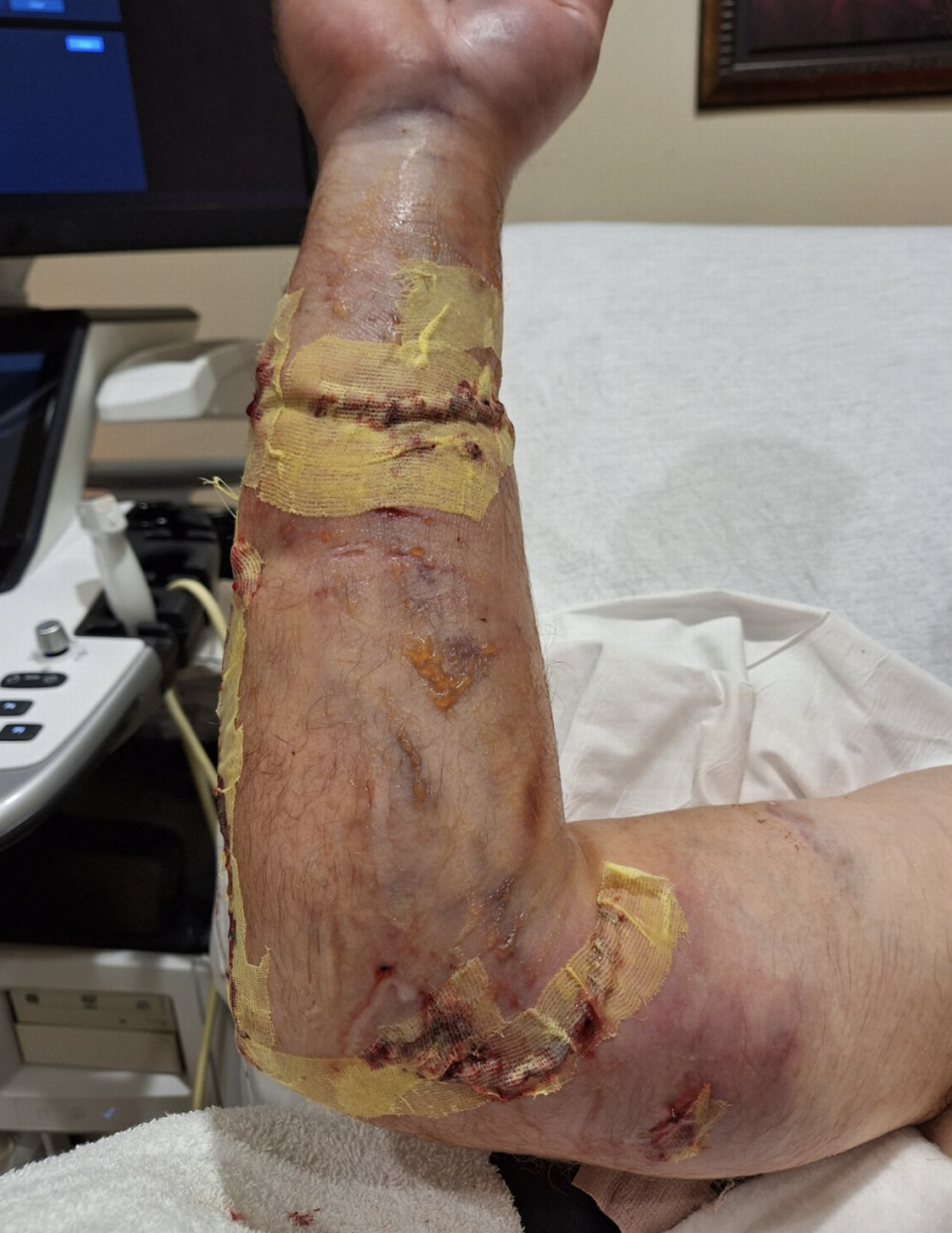‘I knew that was the end:’ SC man survives vicious alligator attack in river. Here’s how
William Georgitis dives for fossils several times a week in the rivers near Charleston, a cherished hobby he’s done uneventfully for eight years.
Then came the afternoon of April 15, when a large alligator made a beeline for him as he came up to the surface after his final dive of the day on the Cooper River.
He said the gator went straight for his head, but he was able to get his right arm up in a defensive move. The gator locked on. He stared into the teeth of the animal, inches from his face.
“If I hadn’t had an (air) regulator on I could have kissed him,” he said Tuesday in an interview from his West Ashley home.
He tried to wrap up the gator, his arm around the animal’s head, his legs around his body. Taking the screwdriver he uses to pry items from the riverbed, he tried to stab him in the eye.
“He shook me like a rag doll,” he said.
The gator then dragged him 50 feet down onto the riverbed as Georgitis’ air tank went empty. The gator held him down.
“I knew that was the end,” Georgitis said.
As a last-ditch effort, Georgitis stabbed the animal along his gum line.
Somehow, Georgitis is not sure how, he was able to push the animal off him and he ripped his arm out of the gator’s mouth. He was prepared to lose his arm to save his life.
Free, he swam quickly to the top and his diving companion managed to pull him into the boat.
Amazingly, when he looked at his arm it was still there — hanging, but there.
The encounter, in a popular diving place known as the power line, spanned 3 minutes.

Once at the hospital, doctors found his ulna had been snapped in half and his radius fractured. Multiple surgeries followed. Doctors believe he will regain use of his arm, but it will be a six-month process. More surgery will be needed as well as physical therapy.
Forty-year-old Georgitis has lived all over the country — California to Florida with many stops in between — and lived in Seneca in high school.
He was drawn to Charleston for the ocean and, as a chef and sous chef, to the restaurants. He happened upon fossil hunting through a friend and it was instant attraction for a man who as a child wanted to be Indiana Jones.
Now, he’s turned his hobby into a career with a business called Voodoo Fossils. He sells online and at expos.
Georgitis won’t be able to work for some time and he has no medical insurance. His sister set up a gofundme account.
“He is an extremely hard worker and an independent, kind person. He needs our help now,” Laurel Black said on Facebook. She and Georgitis are best friends and got to know one another as land fossil hunters.
Black said the Department of Natural Resources was notified.
DNR issued a statement saying the agency is investigating.
Sam Chappelear, SCDNR regional wildlife biologist based in Charleston, said SCDNR and an alligator agent have made three unsuccessful attempts to find the creature.
“There is a low probability that SCDNR will find it, as the alligator may have moved out of the area,” he said. “This is alligator breeding season, and males are moving around.”
He described the area as vast and marshy.
“Not a confined area, like a retention pond, where searching is easier. It’s the Cooper River, and there are a fair number of alligators scattered up and down the river.“
DNR and Georgitis say such an attack is rare. In fact, Georgitis has heard of only one time a diver has been bitten by an alligator and that person ran into the animal in the murky coastal waters.
He doesn’t know why it happened, but he does know the gator was looking for food, not defending territory.
Georgitis said he expects to have PTSD when he resumes diving, but quitting is simply not an option.

